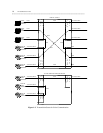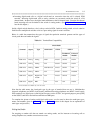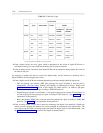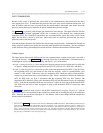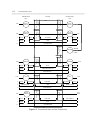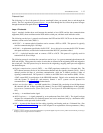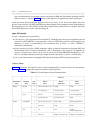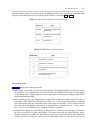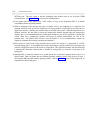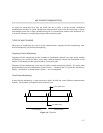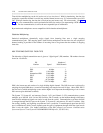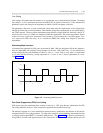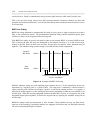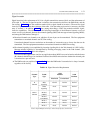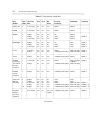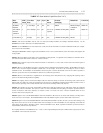1-16 TRANSMISSION STATES
_ ___________________________________________________________________________________________________________________________
_ ___________________________________________________________________________________________________________________________
_ ___________________________________________________________________________________________________________________________
DCP-line port. The only caveat is that the destination data module must be set for mode-2 DMI
communication. (See appendix D for a discussion of DMI modes.)
• Voice-grade data can be carried over a DS1 facility as long as the destination DCE is a modem
compatible with the originating modem.
• When a mismatch exists between the types of signals used by the endpoints in a connection (for
example, the DCE at one end of the connection is an analog modem, and the DCE at the other end is a
digital data module), a modem-pool member must be inserted in the circuit. When the endpoints are on
different switches, the best place to insert the modem-pool member depends upon the transmission
medium, but it is recommended that the modem-pool member be put on the origination or destination
switch. (Note that a modem-pool member will always be inserted automatically for calls to off-
premises sites. For internal calls, however, only the Generic 1 and 2 communications systems are
capable of automatically inserting a modem-pool member.)
• Data cannot be carried over analog facilities unless, inside the switch, it is represented as a PCM-
encoded analog signal. To accomplish this for data originating at a digital terminal, the signal enters the
switch at a digital port and exits the switch at a digital port. The signal then reenters the switch through
a modem-pool connection (data-module to modem to analog-port) and exits the switch again at an
analog port.
• Although DS1 is commonly referred to as a trunk speed, here it names the protocol used at layer 1 for
digital trunks. There are trunks that use different signaling methods, but use DS1 protocol at layer 1
(for example, PRI and 24th-channel signaling trunks). (See the Trunking section of this chapter for an
explanation of these trunk types.)



